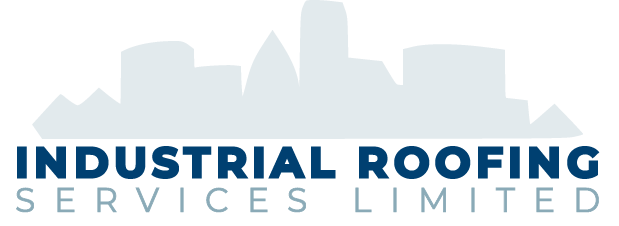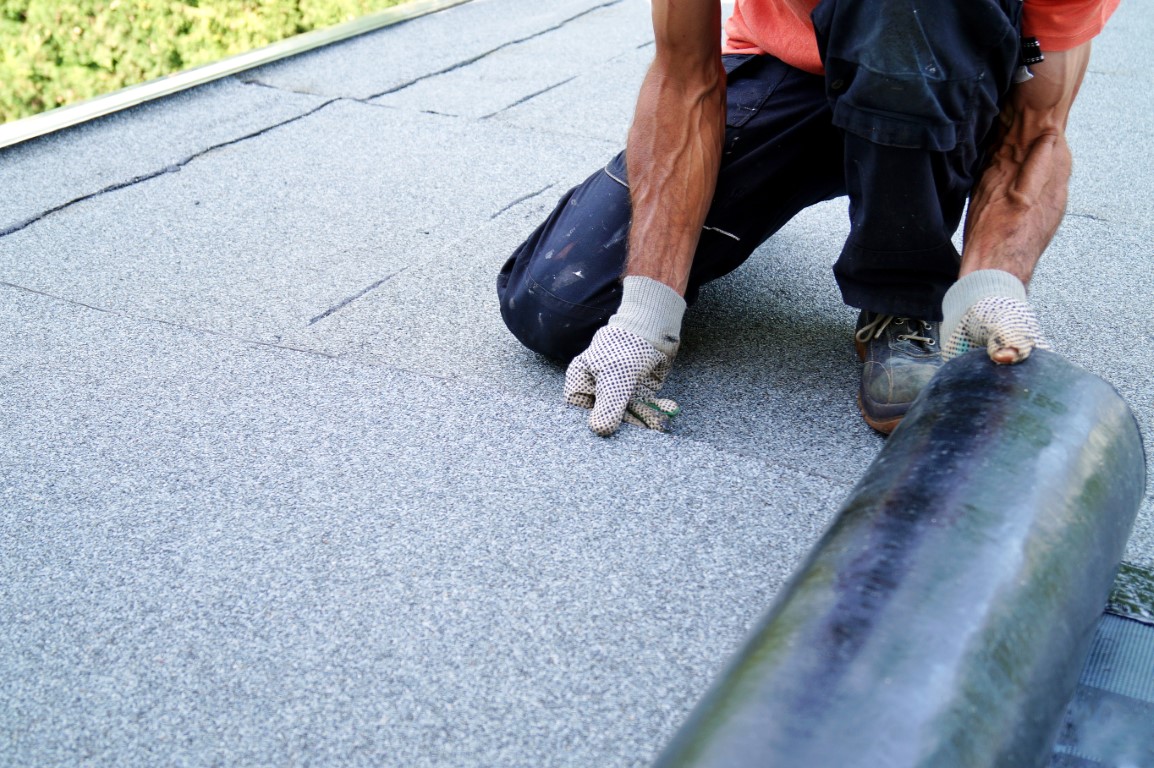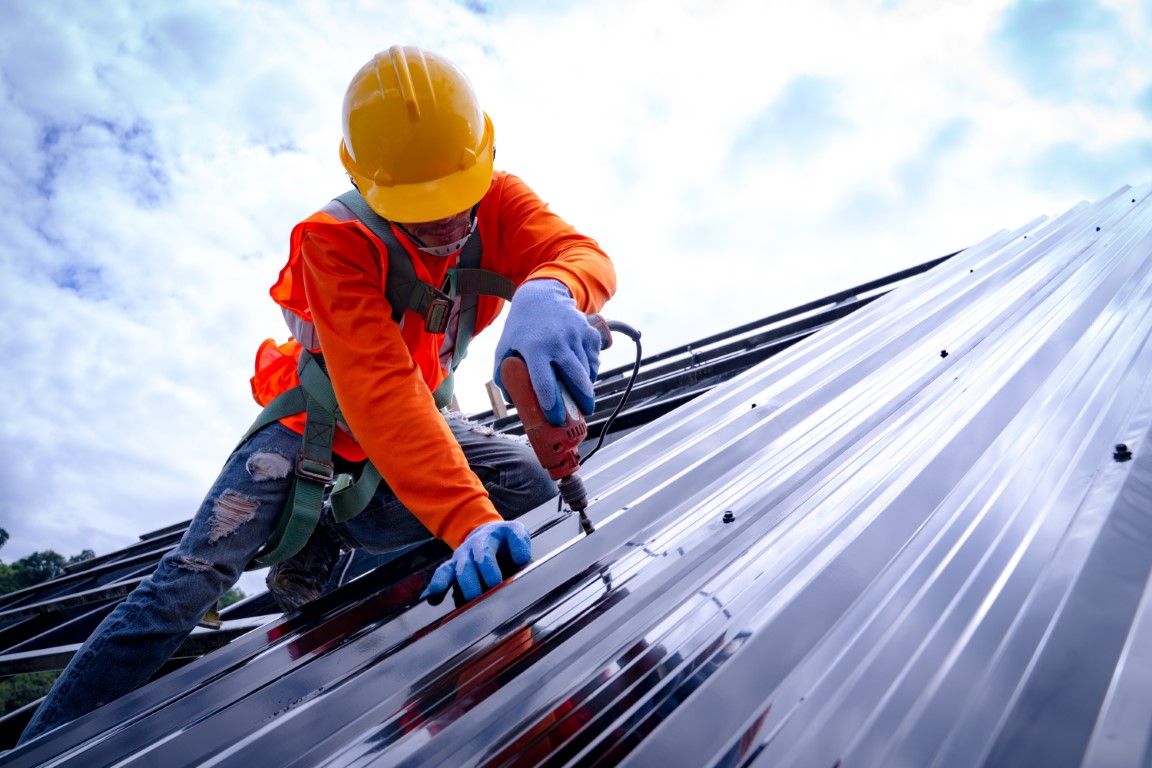As the premier roofing experts serving Toronto and the Greater Toronto Area (GTA) for over 45 years, we have witnessed the evolution of roofing materials and techniques firsthand. Among the various roofing systems available for commercial properties, modified bitumen roofing stands out as a durable, efficient, and cost-effective flat roof replacement.
Understanding Modified Bitumen Roofing System
Modified bitumen roofing material was developed in Europe during the 1960s. It revolutionized the roofing industry by providing a reliable alternative to traditional built-up roofing systems (BUR).
Modified bitumen roofing is a roofing system made of asphalt bitumen modified with polymers and reinforced with fibreglass or polyester. This hybrid material offers exceptional durability and flexibility, making it an ideal choice for commercial buildings with flat or low-slope roofs. Compared to traditional BUR systems, mod bit roofing provides improved weather resistance, UV protection, and ease of installation and repair.
Benefits of Modified Bitumen Roofing
Here are some key benefits of choosing mod bit roofing for your commercial flat roof replacement:
- Durability: Modified bitumen roofing systems are designed to withstand harsh weather conditions, including strong winds, hail, and excessive rainfall. With proper installation and maintenance, these roofs can provide long-lasting protection for your building.
- Weather Resistance: The multi-layer structure of modified bitumen roofing provides superior weather resistance, ensuring that your building remains protected against moisture infiltration and other environmental elements.
- UV & Heat Resistance: The reflective top coating of modified bitumen roofing helps to reduce heat absorption, keeping your building cooler and more comfortable during hot summer months.
- Easy Installation & Repair: Modified bitumen roofing materials come in rolled sheets, making installation quick and efficient. In the event of damage, repairs can be easily conducted with bitumen patches, minimizing downtime and disruptions to your business operations.
- Environmental Friendliness: Modified bitumen roofing materials are recyclable. Making them an environmentally friendly option for businesses looking to reduce their carbon footprint.
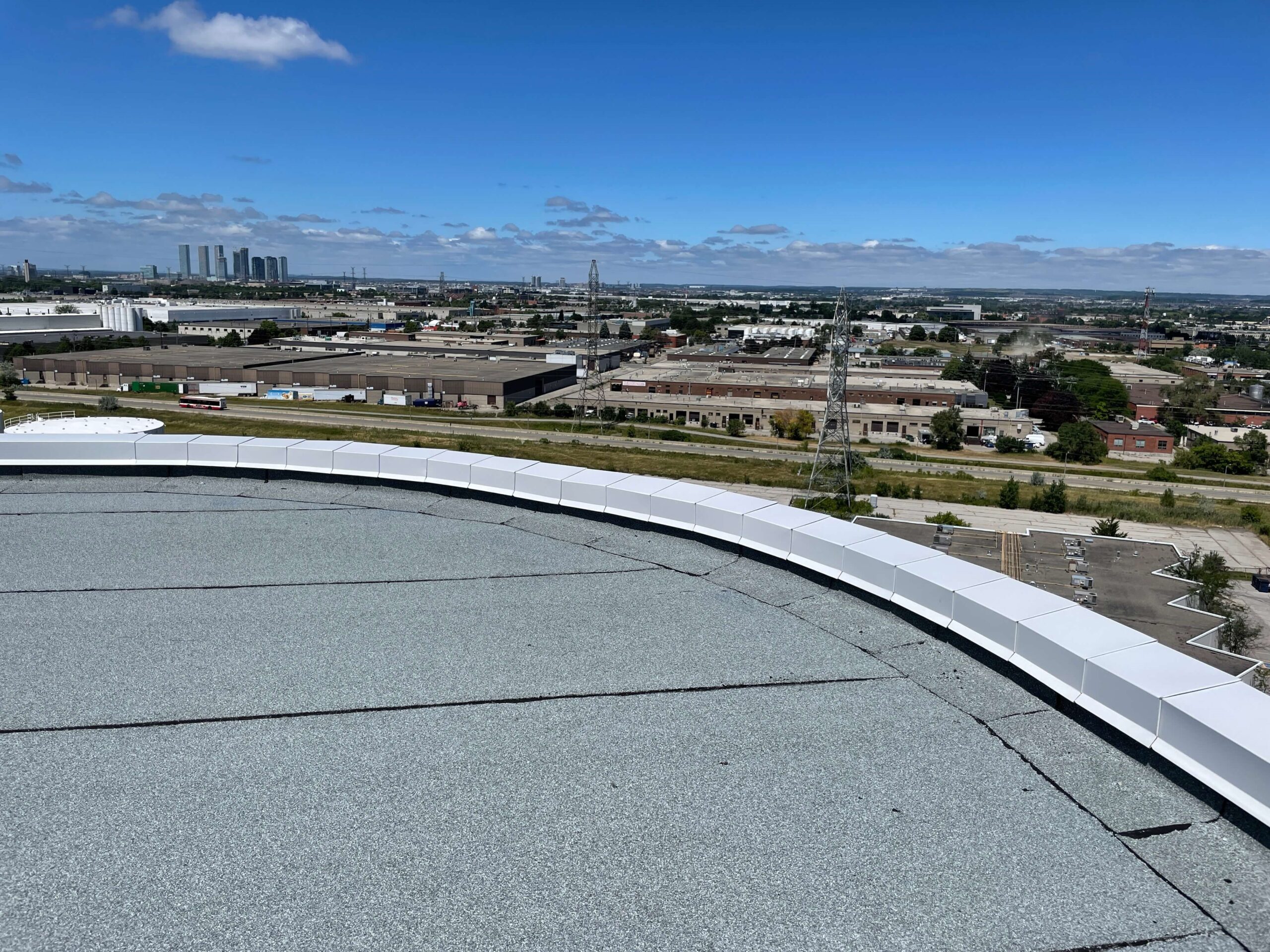
Components of a Modified Bitumen Roofing System
A typical modified bitumen roofing system consists of several layers, each serving a specific purpose to ensure the roof’s effectiveness. These layers include:
- Insulation: Provides thermal resistance (R-value) to help regulate indoor temperatures and reduce energy consumption.
- Modified Base Sheets or Plies: Fiberglass base sheets coated with modified bitumen asphalt for added strength and waterproofing.
- Modified Bitumen Membranes: Fabricated sheet membranes made of copolymer and reinforced with fibreglass or polyester for enhanced durability and flexibility. There are 2 types of Mod Bit membranes available, Atactic Polypropylene (APP) and Styrene-Butadiene-Styrene (SBS).
- Adhesive: A waterproof bonding agent is applied between layers to ensure a seamless connection and prevent water infiltration.
- Surfacing: Provides UV protection and helps to reflect sunlight, reducing heat absorption and energy costs.
The Installation Process
When it comes to installing mod bit roofing, two primary methods are commonly employed. The peel-and-stick method and the torch-down method. Each method offers its own set of advantages and considerations.
- Peel-and-Stick Method: This approach involves applying modified bitumen sheets with self-adhesive backing directly onto the roof substrate. The process is relatively straightforward and cost-effective, making it an attractive option for some projects. However, it’s important to note that the peel-and-stick method may not provide the same level of reliability and longevity as the torch-down method. Additionally, proper surface preparation is essential to ensure optimal adhesion and performance.
- Torch-Down Method: In the torch-down installation method, modified bitumen sheets are heat-welded to the roof substrate using a propane torch. The heat activates the adhesive backing on the sheets, creating a strong bond with the underlay. Torch-down installation offers several advantages, including enhanced durability, superior waterproofing properties, and resistance to UV rays. This method provides a watertight seal that effectively protects the roof against moisture infiltration and other environmental factors.
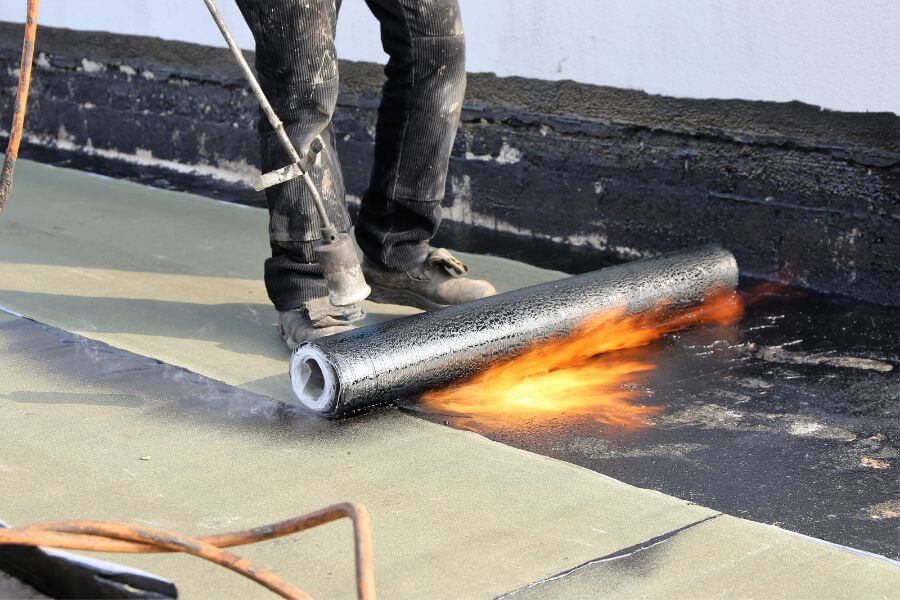
Types of Mod-Bit Roofing Membrane
Modified bitumen roofing membranes come in two main varieties: Atactic Polypropylene (APP) and Styrene-Butadiene-Styrene (SBS).
APP Membranes
- APP membranes are characterized by their plastic-like quality, attributed to the presence of atactic polypropylene in the composition. This material enhances the membrane’s resistance to UV rays, protecting the roof from sun damage and prolonging its lifespan.
- The plasticized polymers in APP membranes promote effective water runoff, ensuring that the roof remains watertight and free from moisture infiltration. This makes APP membranes particularly suitable for areas with heavy rainfall or frequent exposure to harsh weather conditions.
The enhanced UV resistance and water runoff capabilities of APP membranes make them a popular choice for commercial buildings where durability and longevity are paramount.
SBS Membranes
- SBS membranes are distinguished by their synthetic rubber composition, specifically Styrene-Butadiene-Styrene, which provides greater elasticity and flexibility compared to other materials.
- The rubberized nature of SBS membranes allows them to adapt to the movement and shifting of the building structure. This makes them versatile for various installation methods and suitable for roofs prone to expansion and contraction.
- SBS membranes offer excellent resistance to temperature fluctuations and extreme weather conditions, providing reliable protection against heat, cold, and moisture.
The flexibility and resilience of SBS membranes make them an ideal choice for buildings located in regions with unpredictable weather patterns or seismic activity, where structural movement is a concern.
Considerations with Modified Bitumen
While mod bit roofing offers numerous benefits, there are some important considerations to keep in mind:
- Longevity: The average life expectancy of modified bitumen roofing is around 20 years, which may be shorter than some other roofing materials.
- Heat Absorption: Dark-colored modified bitumen membranes can absorb more heat, potentially increasing indoor temperatures, especially if roof insulation is inadequate.
- Risk of Damage: Modified bitumen roofs are durable but may be prone to damage if routinely walked on. Excessive wear and tear can shorten the roof’s service life and functionality.
- Odour & Fumes: Installing a modified bitumen roofing system may produce strong odours and potentially harmful fumes, especially with torch-applied installation methods.
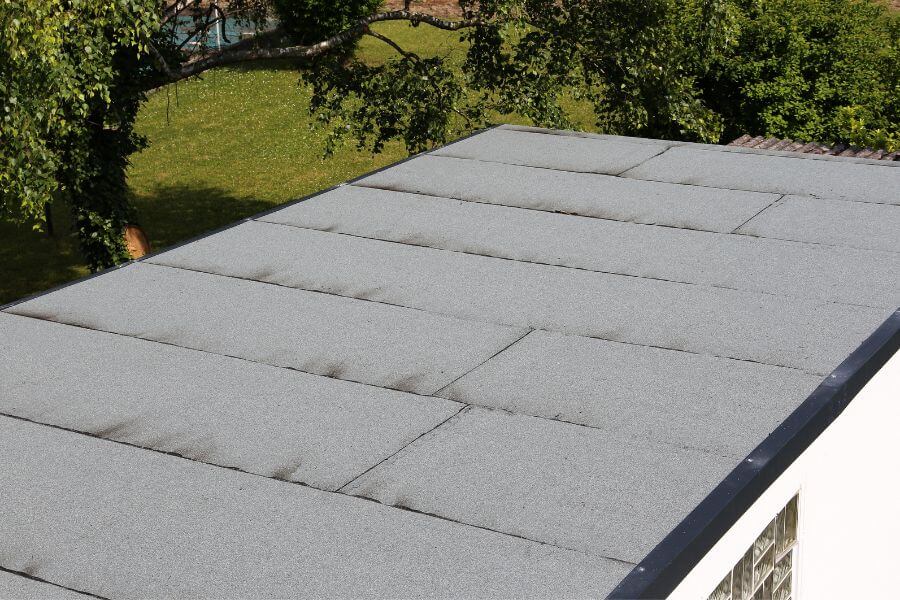
At Industrial Roofing Services Limited, we understand the importance of selecting the right roofing system for your commercial property. With our years of experience, expertise, and commitment to quality, we are dedicated to providing the best roofing solutions to meet your needs.
Contact us today at (905) 760-0735 for a free consultation and quote for your modified bitumen flat roofing project.
